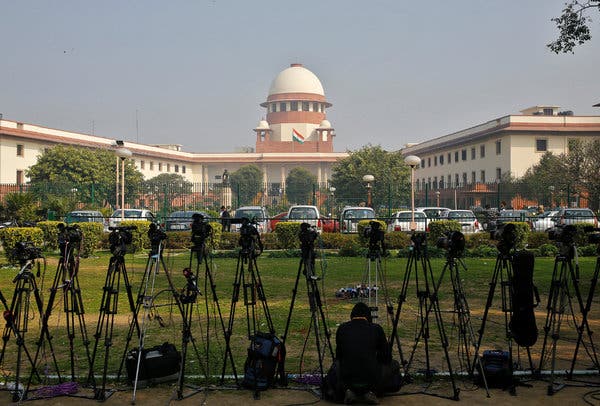New Delhi: The Central government on Tuesday informed the Supreme Court that the new Digital Personal Data Protection Bill will be introduced in the coming Monsoon Session of Parliament commencing in July.
As Attorney General R Venkataramani informed that new Digital Personal Data Protection Bill will be introduced during the Monsoon Session of Parliament and “it will meet all the concerns expressed by the petitioners about personal data protection,” a five-judge constitution bench headed by Justice KM Joseph posted the matter for further consideration in August.
Attorney General Venkataramani today told the constitution bench “The Bill is ready, it just has to be introduced in Parliament in the Monsoon Session at the end of June, July.”
Taking on record the statement by the Attorney General Venkataramani, the bench said, “We take note of the submission of the Attorney General that a Bill which would cover many aspects … addresses all the concerns will be tabled in the Monsoon Session in July 2023. Considering the circumstances, the matter to be placed before the Chief Justice of India for a bench to be constituted preferably in the first week of August.”
Both Justice Joseph and Justice Rastogi will retire before the constitution bench meets in August. Justice KM Joseph will retire on June 16 and Justice Ajay Rastogi will retire on June 17, 2023 and their retirement would necessitate the constitution of a new bench to fill two slots that will fall vacant.
In the last hearing of the matter on January 31, the Centre had informed the constitution bench, also comprising Justice Ajay Rastogi, Justice Aniruddha Bose, Justice Hrishikesh Roy, and Justice CT Ravikumar, that a new Data Protection Bill, 2022 would be introduced in the parliament in the second half of the Budget session.
The bench posted the matter in August, noting that in July, after being introduced, the bill will be under consideration of parliament, so posting the matter for further consideration in August will be practical.
As advocates appearing for the petitioners urged the constitution bench to list the matter early as the Bill has not been introduced in the parliament for so long, Attorney General Venkataramani intervened and said, “Consultation is a long process… We want a good law to come.”
The constitution bench is hearing pleas by two students – Karmanya Singh Sareen and Shreya Sethi – seeking to restrain WhatsApp from implementing its new privacy policy in India. The application by two students was filed before a constitution bench wherein 2016 policy is under challenge.
The notice on the plea by the two students was issued on February 15, 2021 by a bench headed by Chief Justice Sharad A. Bobde (since retired).
The petition by two students has sought a direction to the web service platforms to apply the same privacy policy which is made applicable to the users in the European Union region.
The students had contended that “One set of privacy standards apply to Europe and a different set of standards apply to Indians. This happens when the Personal Data Protection Bill is pending” and “there is a huge differentiation between Europeans and Indians”.
Under the 2021 privacy policy, the users were asked to agree to its new data-sharing norms, a key point of which is sharing data from business conversations with Facebook.
The users were, however, concerned about privacy since it was not optional. The concern of the petitioner students was that the new data-sharing policy does not apply to users in Europe.
In the last hearing of the matter on February 1, 2023, WhatsApp had apprised the Supreme Court about its 2021 communication to the Central government undertaking that its users in India are not bound to accept its 2021 privacy policy for continuing using its messaging service.
The top court taking on record the undertaking given by the WhatsApp to the Central government, had asked the WhatsApp to widely publicise its undertaking to the gove4rnment.
Agencies

